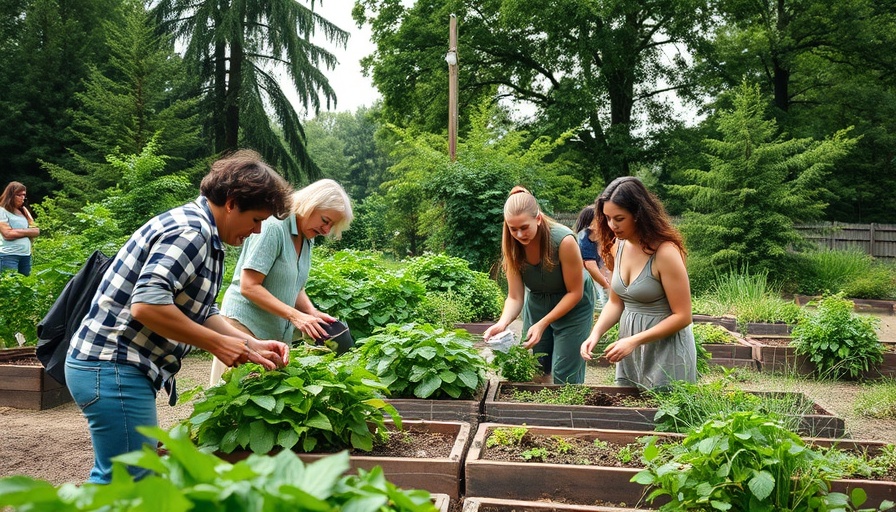
The Road to Sustainable Cities: Why It Matters
The sustainability of urban areas is no longer just an aspirational goal—it's a necessity. As we hurtle towards 2030, over 60% of the world’s population is projected to be living in cities. This impressive growth makes cities the world's biggest drivers of innovation, economic productivity, and social changes. Yet, transforming them into sustainable environments where people and nature can thrive is a significant challenge that requires collective efforts. Notably, the United Nations has included urban sustainability as one of its key goals for 2030, emphasizing the need for inclusive, safe, resilient, and sustainable cities.
1. Rethinking Urban Planning: The Case for Regenerative Development
It is crucial that urban development evolves from traditional practices to regenerative strategies. Many cities are plagued by ghost neighborhoods and unused infrastructures. Regenerative urbanism prioritizes revitalizing these spaces, thus conserving land while maximizing the use of existing resources. Embracing this approach not only respects the environment but also fosters community revitalization and satisfaction.
2. Energy Efficiency in Urban Living: Essential Steps Forward
To tackle climate change effectively, cities must focus on increasing energy efficiency in both new constructions and existing buildings. Cohesive strategies could include retrofitting older buildings with modern insulation materials and solar panels, thereby minimizing energy consumption. By significantly enhancing energy efficiency, we can strive for cities that promise improved well-being for their inhabitants and the planet.
3. Transportation: Shifting Towards Sustainability
The environmental repercussions of automotive traffic are glaring. Cities need to pivot towards sustainable transportation options that support public transit, biking, and walking. Integrating well-planned bike lanes and maintaining pedestrian-friendly pathways are practical solutions that encourage mobility without pollution. Additionally, cities can support the use of electric vehicles by installing more charging stations to alleviate the reliance on fossil fuels.
4. Celebrating Urban Biodiversity: A Community Responsibility
Urban biodiversity is essential for a balanced ecosystem, and it is our task to preserve it. Promoting green spaces, planting trees, and supporting local biodiversity initiatives are small actions that create significant impacts. From community gardens to habitat restoration projects, heightened awareness and participation can rejuvenate biodiversity within city confines.
5. Empowering Citizens: Participatory Governance for Sustainability
Civic engagement is critical in the quest for sustainability. Cities must create frameworks that enable citizen participation, emphasizing the importance of adopting eco-friendly behaviors. By transforming educational initiatives into community actions—like recycling programs and local advocacy—we can foster new ethical values that resonate within the urban fabric.
6. Leveraging Technology: The Smart Cities of Tomorrow
The modern era introduces opportunities for smart technologies to enhance urban management and efficiency. Utilizing IoT (Internet of Things) can support resource monitoring, improve waste management, and optimize energy use in buildings. By employing data-driven insights to promote sustainability, cities can turn into smart ecosystems that prioritize enhanced living standards.
7. Unique Opportunities: The Nexus of Tourism and Sustainability
As cities evolve towards sustainability, they also have the opportunity to reshape tourism. Sustainable tourism models—like eco-friendly accommodations and farm stays—define a new paradigm that contributes to local economies while caring for the environment. Travelers are now seeking greater engagement with nature and culture, presenting cities with innovative avenues to both showcase their commitment to sustainability and drive economic growth.
Focusing on sustainability requires us to rethink our cities and how we coexist within them. By implementing these strategies, we can make our urban environments more habitable, flourishing, and ready to face the challenges posed by climate change. The journey is collective, and each one of us has a role to play. Let's embark on this sustainable endeavor to create cities that will inspire future generations to come.
In summary, the transformative measures highlighted above not only lay the groundwork for more sustainable cities but also create opportunities for communities to come together in response to climate change. To forge ahead in this direction, being informed and engaged is critical. Take action today by advocating for sustainable policies in your community and supporting initiatives that prioritize eco-friendly practices.
 Add Row
Add Row  Add
Add 




Write A Comment